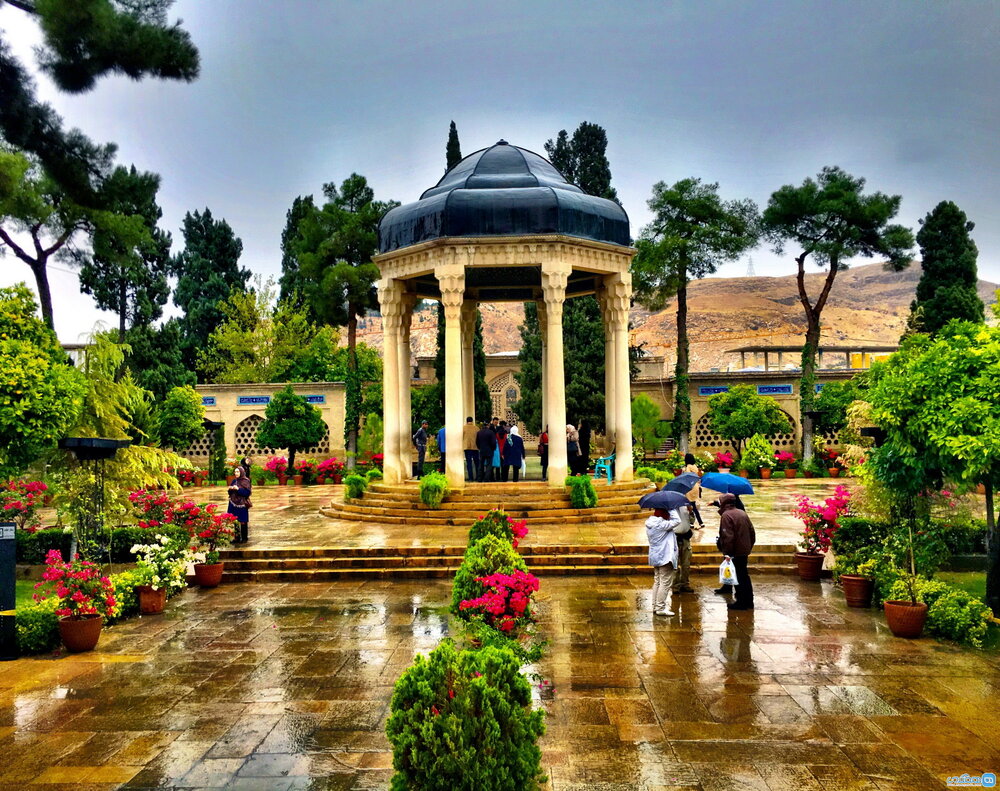Why is the Divan of Hafez the sole book Iranians use for divination?

TEHRAN – The Divan of Hafez composed by Shams ad-Din Mohammad, the celebrated Persian lyric poet who is best known as Hafez, is the sole book Iranians use for divination on various occasions, including the Yalda Night celebration.
“Why the Divan of Hafez?” many people may ask. Top Persian litterateur Mohammad-Ali Eslami Nadushan has given two reasons for this subject in a speech.
One of the reasons, as Eslami Nadushan says, is the equivocal and metaphorical language in Hafez’ poetry.
“None of the Persian poets have used the ambiguous and metaphorical language to the extent that Hafez did. Numerous verses of his poetry have equivocal meanings, and this characteristic makes a poem appropriate for use in divination. The metaphors and double-edged verses give you the opportunity to have your own perception of the poem and not what the poem necessarily says,” he explained.
The other reason is that Hafez’s poetry makes a profound impression on both the commonalty and the notables.
“This characteristic is exclusive to Hafez’s poetry: Those in the notable classes can enjoy his poems as well as those with a lower level of education, who can recite the divan out loud, which helps to ameliorate their sufferings. This is while he is known as one of the most difficult poets to understand in Persian literature,” he stated.
In his book “We Cannot Tell, We Cannot Not Tell”, Eslami Nadushan has elaborated on the reasons behind Hafez’s popularity among Iranians.
“The reason that Hafez is so popular among the Iranian people is that Hafez symbolizes the clear Iranian conscience and subconscious, and has said metaphorically what other poets have not said or said incompletely,” he writes.
“The people hear their inner voice through Hafez’s tongue and are surprised as to how he could have found his way into their minds, therefore he has been given the nickname ‘Lesan al-Ghayb’ (the Tongue of the Unseen Realms) and as a result, people use his divan for divination,” he added.
Eslami Nadushan said that nobody knows when the advent of divination with the Divan of Hafez occurred. However, he guesses that it might begin with the development of the printing industry, which provided easy access to books.
Divination with the Divan of Hafez is part of the Yalda Night celebration, which is held on December 21 this year, the last day of autumn.
For divination, each member of the family makes a wish, then randomly opens the book and asks the eldest member of the family to read it aloud. What is expressed in that poem is believed to be the interpretation of the wish and whether or not it will come true.
Yalda Night is considered the longest night of the year when the ancient Iranians celebrated the birth of Mithra, the goddess of light. It is also known as Chelleh Night, which alludes to the first 40 days of winter, considered to be the harshest of the season.
People on this night are usually served fresh fruits and a mixture of dry fruits, seeds and nuts in floral bowls.
Following a hot dinner, many people often recite poetry, narrate stories, chant, play musical instruments, or just chat cozily until midnight or so.
Photo: This undated photo shows lovers of Persian poet Hafez visiting his tomb in Shiraz.
MMS/YAW
